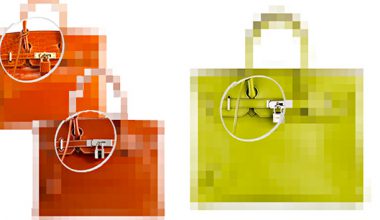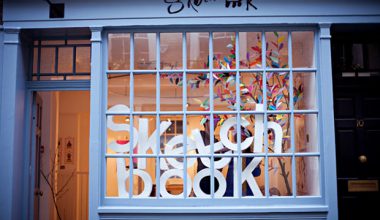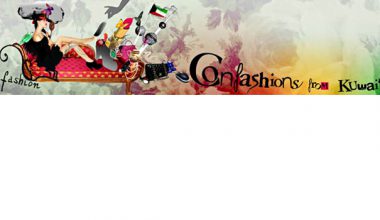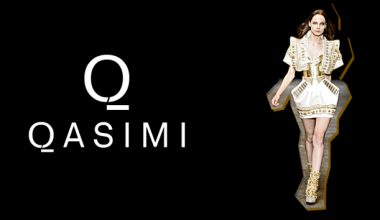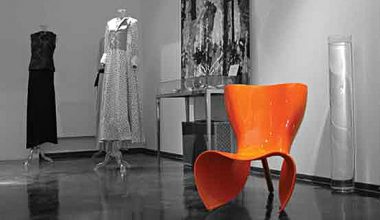Musings from Bahraini entrepreneur, design agency creative director and magazine editor, Wafa Alobaidat
 The best part of what I do is that a few times a year I get invited to talk about myself in universities and colleges around the world. This year I was invited to be a part of a panel discussion at the Jeddah Entrepreneurs Meet 2012. Now call me a cliché, but I never go to Saudi Arabia, opting to go twice – to Mecca and back – only. I never hung around long enough to explore the area, despite having family friends there.
The best part of what I do is that a few times a year I get invited to talk about myself in universities and colleges around the world. This year I was invited to be a part of a panel discussion at the Jeddah Entrepreneurs Meet 2012. Now call me a cliché, but I never go to Saudi Arabia, opting to go twice – to Mecca and back – only. I never hung around long enough to explore the area, despite having family friends there.
Travelling to Jeddah freaked my dad out.
"You are going alone? Is that even allowed?"
"I don't know."
Panic.
It got even worse when I was on the plane. When should I cover my hair? Before I land? As soon as I land? I had no idea.
And yet away I went, alone, with my hair uncovered, wearing an abaya that I hadn't worn in years.
And let me tell you, all that worry was for nothing.
It was fine that I was travelling alone, and it was fine that my hair was uncovered. Because like the cliché ad campaign goes, Jeddah is ghair. In other words, Jeddah is different than the rest of the Kingdom.
I honestly felt like I was in Bahrain, minus the driving. I stayed at the gorgeous Hilton, spoilt from the moment I landed with a car picking me up at the foot of the stairs that lead us down the plane.
I spent two days in Layaleena 2, one of the most extravagant halls in the city, where the conference was held, surrounded by strong ambitious women entrepreneurs in Jeddah.
In Jeddah, girls there had their nails painted, wore make up and accessories, had pixie haircuts, wore retro earrings, smoked cigarettes if they wanted to, and mingled with the other sex.
Despite the wall that separated the audience of women and men at the event, the stage was a mixed panel of young and old, officials and entrepreneurs, female and male. I was only instructed to cover my hair once throughout the duration of my trip, and it was when I met Prince Saud Bin Khalid Al Faisal, the Deputy Governor for Investment Affairs and third son of the current Governor of Mecca, and even he didn't even seem to care every time my shaila fell awkwardly when we spoke.
During day 1 of the conference, a mix of local and international flown in entrepreneurs shared their frank and resourceful success stories. Day 2, however, was far more interesting to me. It was the day that the women who had businesses or wanted to own a business would question officials and high ranked CEOs and heads of organizations about the challenges they faced as entrepreneurs. I was curious to see how members of the public sector would react to these women and their inquiries.
First up was the Minister of Information, a man well into his late 60s. One entrepreneur after the other took to the microphone talking honestly about present challenges. A young woman of 18 years old, got up to ask the minister how she could establish an animation company at her age when the requirements were that she had to be at least 25 years of age. He stared at her puzzled then slowly said "Come to my office tomorrow, and you will get your license."
A loud thunderous applause followed.
One after the other, entrepreneur after entrepreneur, asked the minister for help and permission. He positively said yes to each and every one. But by the 30th question, the calm and collected minister seemed to run out of excuses. He offered to help and assist each and every woman, but it crossed my mind that the problem was in the system and its outdated rules and regulations and not always with the officials themselves. The solution is not to grant each individual a license, but rather to alter the system in order to support and aid entrepreneurs, thus paving the way for innovation instead of doing a one-on-one session with each person.
On a more positive note, a group of 25 Saudi female entrepreneurs who presented their business ideas to a jury of companies and organizations during the conference all got awarded financial support, free marketing and PR services, with the Minister of Commerce throwing in paid salaries for the first year of business to encourage the women to keep going.
It grew evident that the ministers and other high ranking company CEOs began to compete to help. From grants to clients, salaries and mentorship, these women were set for the next year. The conference had a real buzz to it, with a swirl of positive energy flowing around. You could have touched it. Everything felt possible.
When compared, the challenges we face in Bahrain are very much the same as those in KSA. Outdated dinosaur system vs. struggling innovative mind. The only difference is that women in Saudi face much more rigid legal and tribal customs and traditional barriers yet receive a great deal of funding, whereas the Bahrainis have a much easier channel for authorization to practice business, yet we suffer from a lack of grants and schemes for start ups and a shortage of mentoring and emotional support.
During the last few hours before the closing ceremony, a group of women entrepreneurs had an informal one-on-one session with the charismatic Prince Saud Al Faisal. He spent a little more than an hour, listening to the challenges the women were facing. There were no demands here, just an almost therapeutic session, where the Prince was trying to figure who to contact from the cabinet to help. Among the advice he offered when two entrepreneurs were complaining about a matter they had with the Ministry of Health, was that they link together and tackle this as a group challenge, not an individual one. "If there are more of you suffering from the same problem, they will have to look at your cases," he said.
He listened and was very patient. And even when the organizers wanted to cut it short, he asked to stay until the session ended. I was in awe at this modest official who was generous with time, humble with answers, and a patient listener who didn't feel the need to feel frustrated or get defensive.
I started writing this column on my way back to my homeland holding a higher standard with regards to how ministries and officials should deal with entrepreneurs. I am heading back to gather my fellow creatives, so we can demand more support, more grants and a kinder approach to supporting the young businessmen of the island.
On a last note, I must say that the women of Jeddah are not to be underestimated. They come from a melting pot of cultures and countries. They are humble and kind, but forceful. They are strong and trendy, and if given the chance they can rise to be global players in the region.
**I would like to thank my generous and hospitable hosts, the women behind TRACCS, and a personal note to Ahmed Zainal for giving me the opportunity to see firsthand what women in Saudi are capable of doing. You put together a splendid smooth sailing event that benefited entrepreneurs more than you can probably imagine.
Wafa Alobaidat writes a bi-monthly column for Khaleejesque and muses on fashion, art, culture and culture shock in the Middle East. Wafa is also the editor of Sketchbook magazine and runs design and PR agency Obai and Hill.
To get in touch with Wafa, email her at wafa@obaiandhill.com or follow her on Twitter @fashionambition



